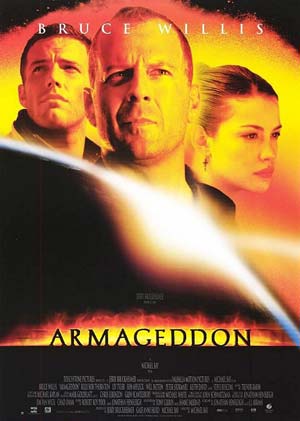


Examples of Drama
 |
| Drama as we know it, in the form of stories to be acted, had its beginnings in 5th-century Greece at the yearly festivals for the wine god Dionysus. Poets chosen to compete each prepared several plays. These first plays were tragedies, dealing with the hero's sufferings and his conflict with destiny, and often ending in disaster. Aeschylus, Sophocles, and Euripides dominated Greek tragic drama. |
| Later contests featured comedies, which were generally more realistic than tragedies, and were often light and humorous, with a happy ending. Aristophanes was the greatest comic dramatist of that time. The Romans imitated Greek drama and added little to it. But the comedies of Plautus and Terence and the tragedies of Seneca had considerable influence on later dramatic work in Europe. |
| We know little about early medieval drama until the miracle, or mystery, plays. These illustrated Christian stories, and developed from church ritual. In the 13th and 14th centuries English trade guilds began to perform great cycles of these plays, several of which survive. We call them by the names of the towns in whose streets they were performed like York, Wakefield, Chester, and Coventry. In later medieval times came morality plays, in which the central figure is confronted with characters representing various vices and virtues. |
| In Elizabethan and Jacobean England, drama flourished, culminating in the great plays written by Shakespeare. In this time, too, permanent playhouses were established. Lope de Vega dominated Spanish drama, and in France Corneille and Racine were producing their classical tragedies. Moliere's comedies greatly influenced the Comedie Franqaise, which was founded in 1680 and was later to become the state theater of France. |
| The English were deprived of theatre by the Puritans during the Civil War. The reaction against this is evident in the cynical and witty Restoration comedy which followed in the late 1600's. Germany's drama developed with the romantic plays of Goethe and Schiller. |
| In the late 19th century, romance and melodrama gave way to more realistic drama. The Norwegian, Henrik Ibsen, developed the first important plays of this kind. One of his most notable followers was George Bernard Shaw, who used his comedies to make social and political comment, which remains an important element in the drama of the 20th century. |
| The first great American dramatist was Eugene O'Neill, whose realistic plays were based to a great extent on his own experiences and tragic view of life. O'Neill's influence led to great activity in the American theater, especially in the 1920's and 1930's. Other realistic dramatists of this period included Maxwell Anderson, Clifford Odets and Thornton Wilder. The verse plays of the poet T. S. Eliot were not realistic works, but nevertheless they had great influence on both American and British drama. |
|
Examples of Drama |
| Romeo and Juliet by William Shakespeare. When Romeo finds Juliet in a drugged sleep, he assumes her to be dead and kills himself. Upon awakening to find her dead lover beside her, Juliet then kills herself. |
| Oedipus Rex by Sophocles in which Oedipus searches to find the murderer of the former king of Thebes, only to discover that it is himself, which is known to the audience all along |
| Othello by William Shakespeare. In which Othello blames Desdemona for cuckolding him but the audience knows that he is being deceived by Iago. |
| Macbeth by William Shakespeare. Macbeth plans the murder of Duncan whilst feigning loyalty. Duncan does not know of Macbeth’s plans but the audience does. |
| The Tempest by William Shakespeare - Miranda does not know that Gonzalo is on the island but her father Prospero, and the audience, does. |
| Ref: https://www.examples-help.org.uk/dramatic-irony.htm |